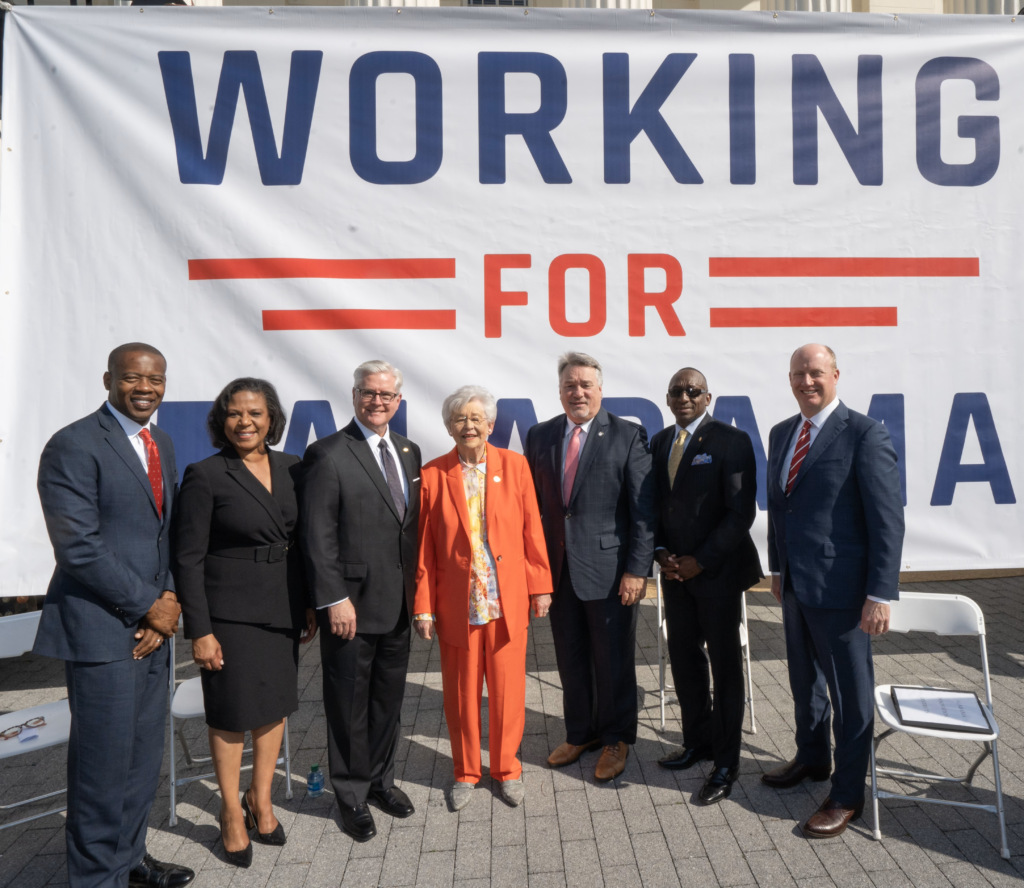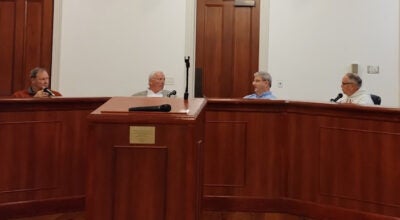Ivey announces legislative package
Published 8:09 pm Thursday, April 4, 2024

- Gov. Kay Ivey announced a legislative package this week.
|
Getting your Trinity Audio player ready...
|
State leaders, led by Gov. Kay Ivey, have introduced a series of bills that they hope will strengthen Alabama’s workforce, economic and community development efforts.
The seven-bill package titled “Working for Alabama” aims to solve one of Alabama’s biggest economic challenges, its labor force participation rate, which is one of the lowest in the country.
“In 2015 major reforms were made within the state’s workforce development sector, and as governor, I am calling on our Legislature to once again make the needed reforms so that our workforce development programs work better for its two customers – our jobseekers and our employers,” Ivey said. “‘Working for Alabama’ is the next big step, and I look forward to seeing the benefits it will have on Alabama for years and decades to come.”
Almost half of the state’s working-age individuals are neither employed nor seeking jobs. Solving this problem was a key priority of the Lieutenant Governor’s Commission on 21st Century Workforce, whose findings played a key role in developing the Working for Alabama package.
“You can ask almost any employer in the state, and they’ll tell you that one of the biggest challenges they face is hiring skilled and trained employees,” said Lt. Gov. Will Ainsworth. “By eliminating barriers to entry into the workforce, and by making our state’s workforce development efforts more intentional, targeted and efficient, we can create an environment where more Alabamians are working, providing for their families, building careers and contributing to our economy.”
In 2021, Alabama high schools graduated 49,615 students and 22,370 of those, 45 percent, did not enroll in a post-secondary program after high school.
The Alabama Department of Education’s annual report card revealed that Marengo County students are not immune to the challenges facing today’s graduates. For the 2022-2023 school year, Demopolis High School students displayed 88% college and career readiness. Sweet Water High School students were at 90% and students at A.L. Johnson showed 80% college and career readiness.
However, at Marengo High School, which ranked an overall score of 67, only 36.84% of students tested were deemed ready for college or a career.
Ainsworth said graduates who do not enroll in college are an important target for the package.
“For high school students who don’t plan to attend college, we need to give them the tools and opportunities to be successful without a four-year degree,” Ainsworth said.
One barrier to employment that has been a key focus of House Speaker Nathaniel Ledbetter, R-Rainsville, is the availability of affordable childcare.
“One of the most prevalent barriers to workforce entry and retention is the rising cost of childcare,” Ledbetter said. “The unfortunate reality is that many Alabamians must choose between raising their children and having a career, and for our state to continue growing, that has to change. The childcare tax credit legislation has the power to give parents choices and help them provide better lives for their children.”
Senate Minority Leader Bobby Singleton, D-Greensboro, said part of making the state more competitive is ensuring that it is a good place to live.
“To win in economic development, you must have strong communities with good infrastructure and a good quality of life. That’s key to attracting investment and growth,” he said. “Working for Alabama will provide much-needed resources for Alabama communities, with an emphasis on rural Alabama, through key resources such as expanded broadband access and other areas needed for success.”





